To kick off our increased coverage of the Middle East, Dan Stewart reports from one of the most frenetic – yet sustainable – construction booms on the planet
It’s a short drive away from its brasher, more famous sister. It may not have the glamour or celebrities that its rival does, but it has the money. And now that it is beginning to spend it, there are great plans for the future. Truly, these are exciting times for Manchester City FC.
The same could be said of the city that bought Manchester’s second football club earlier this month. Abu Dhabi, which has long been in Dubai’s shadow, is now taking its place on the world stage. The capital city of the United Arab Emirates (UAE) has kicked off a multi-billion dollar development plan. But although it intends to match Dubai’s success, its focus will be very different: Abu Dhabi will concentrate on sustainability and the arts. And while the Dubai development bubble swells ever closer to bursting, the pipeline of potential work for UK firms in Abu Dhabi looks strong and steady.
A walking, living city
Approaching Abu Dhabi by road from Dubai, you get a sense of the scale of the city. Its skyline is crowned, not by a sweep of towers, but by a gigantic mosque, the largest in the UAE. As in Dubai, the evidence of construction work is everywhere, but whereas Dubai feels like wall-to-wall building sites, those in Abu Dhabi nestle alongside sixties housing blocks, urban parks and pavements. Also unlike Dubai, Abu Dhabi is a walking city. The government has even started a bus service for its residents. You can’t imagine anyone in Dubai taking a public bus.
“Historically, Abu Dhabi has developed as a living city,” says Gerard Evenden, a partner at Foster + Partners. “You only have to look at the way the plots are broken up. There are public spaces. You can cross the road here.”
Abu Dhabi is one of the richest places in the world. Its citizens have a GDP per capita of an astonishing $63,000 (£35,000), the third-highest after Luxembourg and Norway. As its expatriate residents like to say, Dubai has the flash, but Abu Dhabi has the cash.
Now, the Abu Dhabi government has decided to spend some of its revenue on development.The building boom has been sparked by the death in 2004 of the UAE’s ruler Sheikh Zayed bin Sultan al-Nahyan. Mark Prior, managing director for the Middle East at EC Harris, says the sheikh’s policy had been to keep Abu Dhabi low profile because it had enough oil wealth to keep ticking over. But since then, “ the model for Abu Dhabi is to move away from it’s dependence on oil”, says Prior.
With this in mind, last year it set up the Abu Dhabi Urban Planning Council (ADUPC) made up of local politicians, which published the 2030 Urban Structure Framework Plan. This 160-page report examines the potential for Abu Dhabi’s growth and encompasses masterplans for the city’s surroundings and infrastructure, with an emphasis on sustainability. “The government has watched carefully what has happened in Dubai, and the difficulties of doing huge developments all at one time. It is developing in a very intelligent way,” says Evenden.
The report is only a framework for development, but it does set out in clear terms the priorities for the city’s build programme, including the concept of dividing it into four distinct districts (see box, page 56).
Sustainability
The government has watched carefully what has happened in Dubai. It is developing in a very intelligent way
Gerard Evenden, Foster + Partners
The 2030 plan isolated five “key directions” for the city, the most important of which is sustainability. This approach is typified by the Masdar Initiative, a project to build a 6km2 green community near the airport. The scheme has been masterplanned by Foster + Partners, which has just opened an office in Abu Dhabi.
Masdar special free zone (SFZ) will be dedicated to the research of sustainable technology. Evenden, who is heading its design, says: “If ever there was a group of people with foresight, it is the government of Abu Dhabi. Masdar will be the equivalent of Silicon Valley for environmental research.”
A large photovoltaic plant has been built to provide power for the construction of Masdar SFZ and the community that will move in. Work is set to begin later this year, with completion of phase 1A due in 2009 – one thing Abu Dhabi shares with Dubai is phenomenal speed of construction.
A host of UK consultants are working on its development, including Cyril Sweett, WSP, Gustafson Porter, Adams Kara Taylor and Pell Frischmann. Evidently, experience of sustainable construction comes in handy in Abu Dhabi. “Sustainability is becoming more and more of a concern, arguably more so than in Dubai,” says Paul Looker, Mott MacDonald’s country manager for Abu Dhabi. “Our environmental department has grown from nothing to 15 people in two years. Every client wants a proper environmental impact report before building now.”
Culture
Those familiar with the malls and tourist playgrounds of Dubai may consider the UAE a cultural desert, but Abu Dhabi has announced its intention to be an oasis of arts and architecture. Looker says the government’s motivation for the cultural district is simple: “It doesn’t want the city to be like Dubai. It wants to be attractive to the cultural end of the tourism market, and appeal to quality tourists.”
It will start with Saadiyat Island’s cultural district, which will include galleries and museums designed by world-renowned architects such as Frank Gehry, Jean Nouvel, Zaha Hadid and Norman Foster.
The world has not seen a cluster of new buildings by a roll-call of architects such as these before – and British firms have an unprecedented opportunity to help them. Buro Happold, for example, is engineering Jean Nouvel’s saucer-shaped Louvre Museum.
Breaking in
So how to break into the market? Many of the UK firms doing well in the region have had a presence in Abu Dhabi for years – Mott MacDonald, for example, has been here for 30 years. “The key is to choose a local partner and get in at the right level,” says Looker.
They are building some of the most complicated jobs in the world. You need to be on the ground to help deliver them. The suitcase arrangement doesn’t work
Steve Coates, Davis Langdon
Finding a local partner or sponsor is essential to setting up in Abu Dhabi. This can either be an Emirati individual who will take part-ownership of your company or a company that you can do a joint venture with. Steve Coates, a director at Davis Langdon’s Middle East office, advises asking a good law firm to make an introduction.
“You need a reputable company that will behave appropriately and look after your brand,” he says. “It’s extremely important to have a reputable partner, and a good legal firm will be able to help you with that.”
Another option is to contact Abu Dhabi’s Chamber of Commerce and Industry, which will help you set up meetings with potential sponsors – though the ADCCI’s lack of construction expertise makes it harder to evaluate the reputation of these sponsors.
Finding a partner is one thing, but registering with a municipality is quite another. Registration can be a six-month process, as you must prove that you have the right experience and the appropriate skills and resources to set up shop in Abu Dhabi.
Coates says that although registration is time-consuming and bureaucratic, it is not difficult. “Abu Dhabi’s government is well organised. You don’t get to run an office in Abu Dhabi without being put through your paces, which means that the quality of companies coming here is quite high.”
In addition to demonstrating the calibre of your organisation, having people from your company living in the country is essential, says Coates: “They are building some of the most complicated jobs in the world. You need to be on the ground to help deliver them. The suitcase arrangement doesn’t work.”
This presents its own challenges. Expatriate life in Abu Dhabi may be sociable, but it has difficulties. Until much of its new infrastructure and housing is built, the city will continue to burst at the seams with people. This means traffic is at a near-constant gridlock, parking is difficult, and finding a decent place to live – for the time being – is near impossible. “The government is building some low-cost housing outside the city limits, but professional workers want three-bedroom houses or bungalows,” says Looker.
Even when you do find accommodation, landlords in Abu Dhabi commonly look for a year’s rent to be paid in one instalment. Most UK companies in the city have to loan staff the money for this, so it is a serious factor when sending employees to work in the country full-time. “That’s a big investment when you’re starting up,” says Coates. “It can cause cash flow issues for a small company.”
If you have a family, an extra pressure is that English-language schooling is in extremely short supply. Fortunately, the national developers are coming to the rescue. “Aldar Properties has six English-language schools planned at the moment,” says Looker. “Developers are increasingly starting to see it as a market, so if you have experience of school-building, that is a possible way in.”
Making opportunity out of its limitations is something that comes naturally to Abu Dhabi, an island state that has been forced to look inwards rather than outwards for investment. But if the enthusiasm that has gone into the plans are anything to go by, then one thing is clear: it’s probably time to start supporting Manchester City.
What will be built by 2030
The gigantic developments at Masdar, Saadiyat Island and Yas Island are just the tip of the construction iceberg. Under Abu Dhabi’s 2030 urban framework, four new districts, worth more than $500bn (£280bn), are to be built in the next 20 years:
The new central business district
This will encompass Al Suwwah island and the adjacent edges of Al Mina, Al Reem and Abu Dhabi islands. This mixed-use district will feature the tallest towers on Abu Dhabi’s skyline.
Capital district
Known as the “city brain”, this area will host medical centres, higher education facilities, government buildings and low to medium-density housing.
Grand mosque district
This area will include the grand mosque, engineered by Halcrow, a sports city and the redeveloped Al Bateen airport.
Lulu island
This 400ha man-made island will be a “city sanctuary” in which Abu Dhabi will display its “cultural, environmental and UAE national values”.
Survival Kit

Pint of lager
Depending on the bar, 15-30 Dirhams (£2.50-£4). Most alcohol is bought in hotels
Month’s rent
Between 8,000 and 10,000dh (£1,100-£1,300) per month – but you have to pay for 12 months in one go
Taxi fare for a 10-minute journey 5dh (80p)
A tank of petrol 50dh (£8)
Pay cheque
A project manager with 15 years’ experience could expect £90,000 a year – a labourer on the other hand yends to take home 28dh (£4.30) a day …
Our Woman in… Abu Dhabi

Sophie Brammal (27), architect, Benoy Partnership
Abu Dhabi has got everything. I prefer it to Dubai because there’s a smaller, more familiar community here. Everyone is very welcoming and friends are made really quickly.
There’s a lively bar scene in the city. Take Bar Hemingway’s at the Hilton, or the Captain’s Arms. There’s also Ocean Bar at Le Royal Meridien – they have a ladies’ night on Tuesdays where women can go and drink for free – there are many ladies’ nights.
There are great beach parties held on a private island called Al Maya, and if you want hardcore clubbing, then Dubai is just two hours away.
Shopping is a national pastime – all the malls stay open until midnight. We’ve got loads of UK brands, and prices are much the same as in the UK, minus the tax, of course. The cost of living in general is perhaps slightly cheaper than the UK, although alcohol is more expensive. You can get pretty much anything you need from the supermarkets. Some have sections where you can buy English foods.
It’s such an exciting time to be a young architect in Abu Dhabi. I am working on the Ferrari World project, a theme park which will include hotels, a shopping complex and beach resorts, in addition to a Formula 1 race track. The sheer scale and all the craziness of the projects out here at the moment make it a really good place to be.




















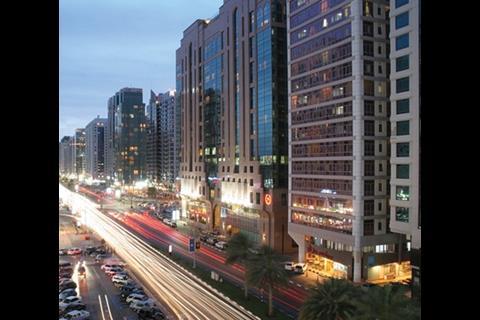
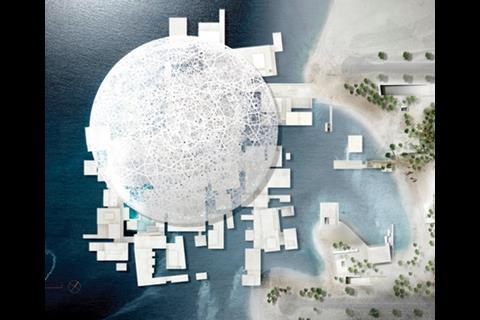
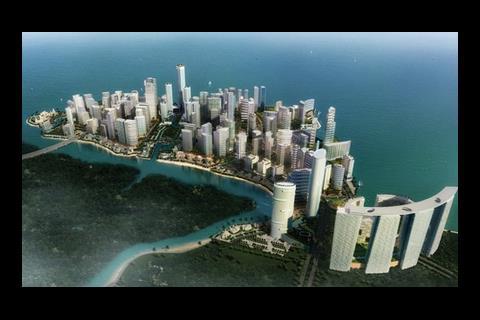
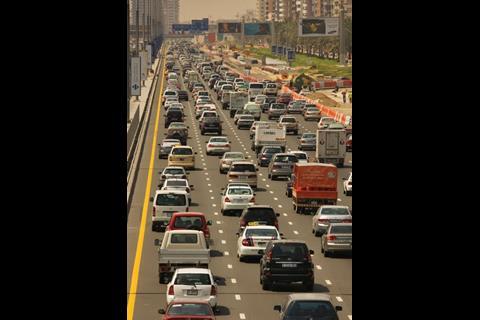
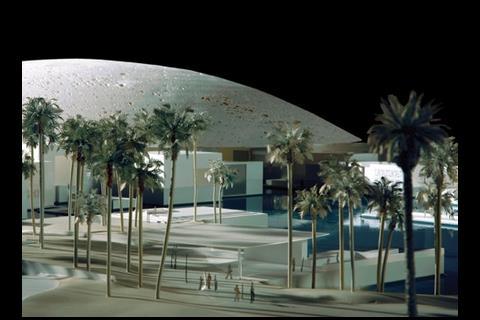
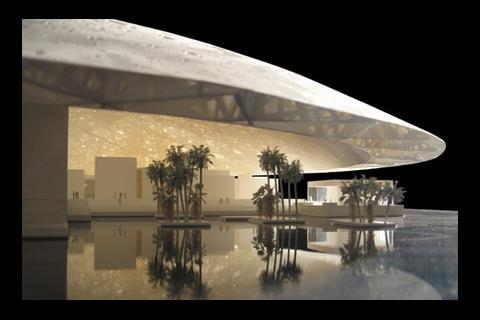
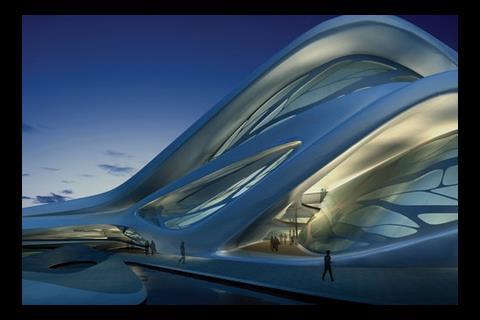
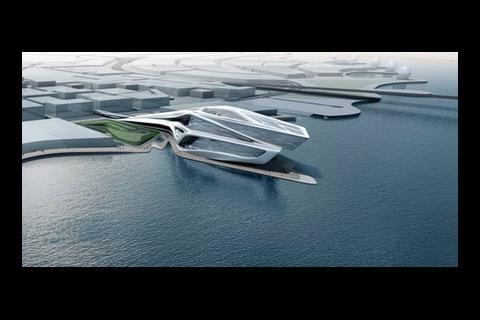
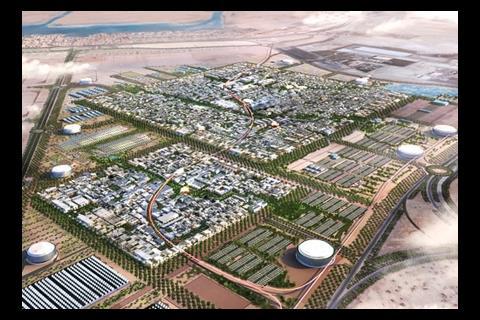
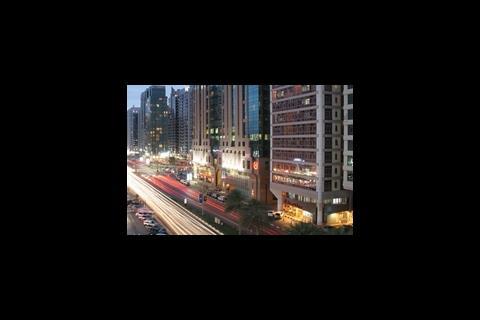







3 Readers' comments